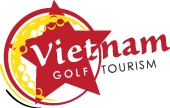Reading Time: 6 minutes

Singapore visa-free entry policy for 159 countries, including Schengen and Gulf nations, is significantly boosting its travel industry.
Singapore’s tourism sector is thriving, propelled by a visa-free policy for 159 countries, including all Schengen and GCC countries, which has significantly enhanced the ease of travel and boosted arrivals. This policy has had a ripple effect across various sectors, including airlines, hospitality, and cruises, fueling growth and investment in each. Singapore’s commitment to sustainability and the integration of AI in services and operations are further enhancing its appeal as a forward-thinking destination. The nation’s appeal on leisure, event, business travel and tourist attractions is complemented by the efficiency and connectivity offered by Changi Airport, recognized as one of the world’s leading air hubs. These strategic initiatives collectively strengthen Singapore’s position as a top global destination, driving the expansion of its travel and tourism sectors while ensuring a sustainable and innovative future.
Singapore’s tourism sector has seen remarkable growth over the past few years, as evidenced by a significant rise in visitor arrivals and strong performances in the hotel and cruise line industries.
Visitor Arrivals and Overnight Stays
In 2022, Singapore welcomed 6.31 million visitors, with 4.68 million opting for overnight stays. The following year marked a substantial increase, as the visitor count soared to 13.61 million, and overnight stays rose to 10.25 million. The momentum continues into 2024, with projections showing 6.99 million visitors and 5.20 million overnight stays.
Cruise Line Industry
The cruise sector has also demonstrated robust growth. In 2022, the industry served 1,181,953 passengers. This figure dramatically increased in 2023, with 2,037,172 passengers enjoying Singapore’s cruise services, indicating a thriving interest in maritime travel.
Hotel Industry Performance
The hotel industry has similarly flourished. In 2022, the average room rate stood at $250.61, with an occupancy rate of 75.28%. By 2023, these figures had increased to $279.62 and an 80.11% occupancy rate, respectively. This upward trend is set to continue in 2024, with the average room rate expected to rise to $288.22 and occupancy to edge up to 80.69%.
Changi Airport: A Global Hub
Singapore Changi Airport, a pivotal international airport and one of the largest transportation hubs in Asia, significantly contributes to the nation’s tourism appeal. It supports over 100 airlines that fly to 400+ cities across approximately 100 countries. Each week, Changi manages about 7,400 flights, roughly one every 80 seconds. The airport surpassed pre-pandemic passenger levels with about 16.5 million passengers in the first quarter of this year alone. In 2023, it handled a staggering 58.9 million passengers. The leading passenger markets include Indonesia, India, Malaysia, Australia, the Philippines, and China, positioning Singapore as a central nexus in global air travel.
TTW Editor in Chief Mr Anup Kumar Keshan said: “Singapore’s commitment to leveraging AI technology significantly boosts efficiency within its tourism and business travel sectors. This approach, combined with a strong focus on sustainability, ensures that the city-state not only meets the modern traveler’s needs but also sets a benchmark for responsible tourism. By hosting world-class events and maintaining open visa policies for 159 countries, including all Schengen and GCC nations, Singapore effectively attracts a global audience, making it a pivotal hub for international business and leisure travel.”
Growth in Airline Sector:
Singapore Airlines, the flag carrier based at Changi Airport and a member of the Star Alliance. It stands out as a 5-star airline and has been named the world’s best airline by Skytrax five times. Operating a diverse fleet including the Airbus A350, A380, and various Boeing models, Singapore Airlines is recognized globally for its high standards of service.
The airline, along with its subsidiary Scoot, has seen a significant surge in air travel demand, especially from reopened North Asian markets such as China, Hong Kong, Japan, and Taiwan. Together, they carried 36.4 million passengers, marking a 37.6% increase year-on-year. This growth in passenger traffic, which rose by 26.6%, exceeded the 22.9% increase in capacity, resulting in a record group passenger load factor of 88%. This demonstrates a robust recovery and a strong upward trajectory in the airline’s operations.
Upcoming MICE Events
Singapore is set to host several significant conferences that will further boost its MICE, event, and meeting industry:
- 18 Jun: International Conference on Advances in Tourism Economics (ICATE)
- 21 Jun: International Conference on Domestic Tourism and Strategic Analysis (ICDTSA)
- 12 Jul: International Conference on Food and Tourism (ICFT)
- 16 Jul: International Conference on Food Tourism and Sustainability (ICFTAS)
- 22 Jul: International Conference on Sport Tourism Activities and Local Organizations (ICSTALO)
These events are expected to attract a considerable number of business travelers, further enhancing Singapore’s position as a premier destination for international meetings and conferences.
Strengthened Airline Partnerships
Additionally, Cebu Pacific, the Philippines’ leading airline, has strengthened its partnership with the Singapore Tourism Board (STB) to create more opportunities for travelers to the Lion City. This collaboration is aimed at enhancing connectivity and encouraging more visits to Singapore, aligning with the overall growth strategy of the nation’s tourism sector.
Singapore’s Tourism Embraces AI Experience
AI technology significantly enhances Singapore’s tourism by improving operational efficiency and service delivery, making it essential for staying competitive in the industry. Hotels lead in AI adoption, using voice AI assistants as multilingual in-room concierges for seamless guest interactions. Additionally, the Singapore Tourism Board and Google are enhancing tourist experiences through Augmented Reality tours, now integrated with Google Maps, offering interactive exploration of the city’s rich heritage directly from the app.
Countries that can visit Singapore visa free:
Here is the shuffled list of countries:
- Dominican Republic
- Liechtenstein
- Guatemala
- Philippines
- Central African Republic
- Lesotho
- Democratic Republic of the Congo
- Burundi
- Slovenia
- Gambia
- Israel
- United Arab Emirates
- Vietnam
- Belgium
- Estonia
- Monaco
- Malawi
- Canada
- Australia
- Guinea-Bissau
- Portugal
- Czech Republic
- Qatar
- Trinidad and Tobago
- San Marino
- Grenada
- Guyana
- Marshall Islands
- Côte d’Ivoire
- Finland
- Cape Verde
- Kiribati
- Austria
- Bhutan
- Argentina
- Venezuela
- Sierra Leone
- Ethiopia
- Republic of the Congo
- Jamaica
- Japan
- Saint Lucia
- Botswana
- Iceland
- Brunei
- Myanmar
- Guinea
- Tuvalu
- Solomon Islands
- Suriname
- Mauritius
- Thailand
- Saint Vincent and the Grenadines
- Fiji
- Djibouti
- Papua New Guinea
- Saudi Arabia
- Romania
- Slovakia
- Haiti
- Cyprus
- Luxembourg
- Namibia
- Costa Rica
- South Africa
- Eritrea
- Peru
- Equatorial Guinea
- Saint Kitts and Nevis
- São Tomé and Príncipe
- Sri Lanka
- Benin
- Niger
- Indonesia
- Uruguay
- Laos
- Madagascar
- Eswatini
- Tanzania
- Vanuatu
- Montenegro
- Ecuador
- Denmark
- Lithuania
- Comoros
- Albania
- Cameroon
- Belize
- Malta
- Mongolia
- Brazil
- El Salvador
- Uganda
- Hungary
- Bahamas
- Honduras
- Micronesia
- Chile
- Andorra
- Italy
- Ireland
- Tonga
- United States
- Sweden
- Spain
- Nepal
- Kenya
- Dominica
- France
- Croatia
- Cambodia
- Switzerland
- Liberia
- Burkina Faso
- Germany
- Mozambique
- Malaysia
- Zambia
- Turkey
- Poland
- Latvia
- Angola
- Senegal
- United Kingdom
- Norway
- Mexico
- Barbados
- Netherlands
- Panama
- Gabon
- Bolivia
- Kuwait
- New Zealand
- Chad
- Antigua and Barbuda
- Serbia
- Oman
- Maldives
- Colombia
- Greece
- South Korea
- Paraguay
- Bahrain
- Palau
- Nauru
- South Sudan
- Ghana
- Nicaragua
- Bulgaria
- Mauritania
- Togo
- Samoa
- Rwanda
- Bosnia and Herzegovina
- Timor-Leste
- North Macedonia
- Zimbabwe
- Cuba
- Seychelles
This comprehensive growth in Singapore’s tourism sector highlights the city-state as a preferred destination for global travelers, supported by its robust infrastructure in both the accommodation and cruise sectors.
Singapore has solidified its position as a leading global hub for tourism and aviation, driven by strategic advancements across multiple sectors. The city-state’s visa-free policy for 159 countries, including all Schengen and GCC nations, has significantly boosted its appeal, facilitating an influx of international travelers that energizes the airline, hospitality, cruise, and tourism industries. This policy, alongside Singapore’s commitment to sustainability and the integration of AI in tourism operations, ensures a seamless and advanced travel experience. Innovations such as augmented reality tours developed in collaboration with Google, and enhanced connectivity through partnerships with airlines like Cebu Pacific, further expand Singapore’s global reach and tourism appeal.
Also, Singapore Airlines continues to exemplify excellence with its strategic base at Changi Airport, one of Asia’s foremost air hubs. The airline efficiently manages the increasing demand for air travel, particularly from North Asian markets, leading to a record high in passenger load factors. Additionally, the city is set to host numerous international conferences, including those focused on tourism economics, domestic tourism strategies, and food and sport tourism. These events not only bolster Singapore’s MICE sector but also attract a significant number of business travelers, further reinforcing its reputation as a top choice for international travelers and a vital player in the global travel and tourism landscape.
Top tourist spots in Singapore:
- Marina Bay Sands: This iconic integrated resort features the world-famous SkyPark, an infinity pool, and a rooftop overlooking the city skyline, making it a must-visit for breathtaking views.
- Gardens by the Bay: A futuristic park with giant solar-powered “Supertrees” and two climate-controlled biodomes, showcasing exotic plants from around the world in an extraordinary display.
- Sentosa Island: A resort island south of Singapore, Sentosa is home to beaches, theme parks, golf courses, and attractions like Universal Studios Singapore, making it a perfect spot for family fun.
- Orchard Road: Known as the retail heart of Singapore, Orchard Road is a bustling boulevard lined with shopping malls, upscale boutiques, and plenty of dining options, ideal for shopaholics and food lovers.
- Singapore Zoo: Renowned for its ‘open concept’, which offers the opportunity to experience wildlife in naturalistic habitats, the Singapore Zoo is home to over 2,800 animals from 300 species, providing an engaging experience for all ages.
The post How Singapore Is Surging in The Travel Industry With Visa-Free Entry Policy For 159 Countries Including Schengen And Gulf Nations? appeared first on Travel And Tour World.
The article "How Singapore Is Surging in The Travel Industry With Visa-Free Entry Policy For 159 Countries Including Schengen And Gulf Nations?" was originally published on https://www.travelandtourworld.com/news/article/how-singapore-is-surging-in-the-travel-industry-with-visa-free-entry-policy-for-159-countries-including-schengen-and-gulf-nations/




